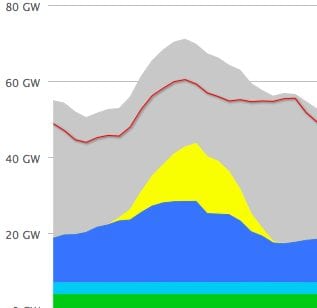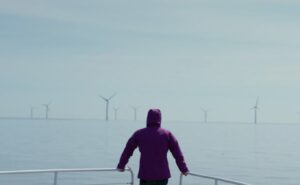Renewable energy created a new record in Germany on Sunday, with wind and solar, supported by biomass and hydro, accounting for 74 per cent of demand in the middle of the day.
As this graph below from think tank Agora Energiewende shows, the combined contribution of renewables reached 43.54 gigawatts between noon and 1pm.
That accounted for three quarters of demand, although the inability of some baseload generators to switch themselves off (many did) meant that a record level of more than 10GW of surplus capacity at its peak was exported to neighbouring markets.
The solar output was 15.2GW at its peak, which is just half its rated peak capacity (more than 33GW), but that is because most of the northern half of the country was shrouded in clouds and rain. Wind accounted for 21GW at the 1pm peak, while conventional sources such as nuclear, coal and gas accounted for 26GW – around half their normal daily production peaks.
According to BDEW, the share of renewable power in Germany’s electricity consumption jumped to 27 per cent in the first quarter of 2014, up from 23 per cent a year earlier. Below is a table that shows the various inputs for the past week, leading up to the record peak production day on Sunday.










